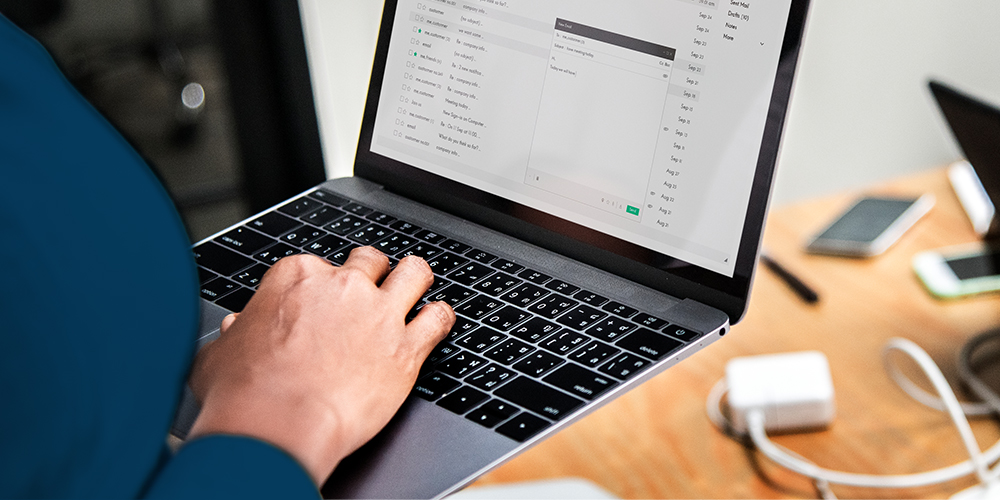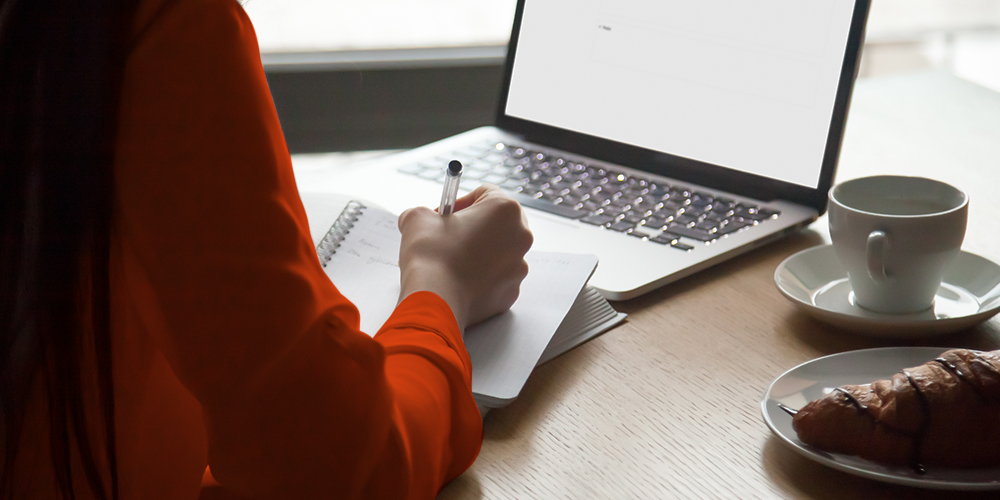
You've completed a job interview and left a positive impression on the hiring manager. However, your job isn't done just yet. Following up after an interview is a crucial step that demonstrates your professionalism, reiterates your interest in the position, and keeps you on the employer's radar.
In this article, we will provide valuable tips on following up effectively and leaving a lasting impression on potential employers.

Why Is Following Up After an Interview Important?
Following up after an interview is a critical step that should not be overlooked in the job application process. Here are a few key reasons why follow-up is important:
1. Demonstrates Professionalism and Interest
Sending a follow-up message showcases your professionalism and etiquette. It demonstrates that you appreciate the time and opportunity given to you by the interviewer.
Following up also highlights your genuine interest in the position and the organization. It reflects your proactive approach and commitment to the job opportunity, leaving a positive impression on the hiring manager.
2. Reinforces Your Qualifications and Reminds the Interviewer
A follow-up allows you to reinforce your qualifications and skills discussed during the interview. By summarizing key points or highlighting specific experiences or achievements, you remind the interviewer of your potential value to the organization.
This reminder can be particularly helpful when they are evaluating multiple candidates. Additionally, if there were any questions or concerns that needed to be fully addressed during the interview, a follow-up allows you to provide additional information or clarification, further solidifying your candidacy.
resume_3_light_banner
3. Builds and Maintains Relationships
Following up after an interview helps you build and maintain professional relationships. By expressing gratitude and appreciation for the opportunity to interview, you demonstrate respect and consideration for the interviewer's time and effort. It opens up the door for further communication and networking opportunities, even if you are not offered the position. Building a positive rapport can lead to future job prospects or referrals within the industry.
4. Keeps You Fresh in the Interviewer's Mind
The follow-up message serves as a gentle reminder to the hiring manager about your interview. It helps to keep your name and qualifications fresh in their memory as they make their hiring decision.
In competitive job markets, where recruiters often interview numerous candidates, a well-timed and thoughtful follow-up can make a significant difference in how you are perceived compared to other applicants. It also demonstrates your commitment and attention to detail, reinforcing your candidacy.
5. Provides an Opportunity for Clarification
Following up after an interview can also give you the chance to address any concerns or clarify any misunderstandings that may have arisen during the interview process.
If you feel there were areas where you could have provided a more thorough response or if you think there was any miscommunication, the follow-up allows you to address those points and provide additional context. This proactive approach showcases your communication skills and problem-solving abilities.

1. Timing is Key
Timing plays a vital role when it comes to following up after an interview. Send a follow-up email or letter within 24 to 48 hours of the interview to express your gratitude and reiterate your interest. This shows promptness and eagerness, while the interview is still fresh in the interviewer's mind.
2. Craft a Thoughtful Email
When composing your follow-up email, ensure it is concise, professional, and well-written. Start by expressing your appreciation for the opportunity to interview and thank the interviewer for their time and insights. Reiterate your interest in the position and briefly mention specific points from the interview that resonated with you. Use this opportunity to address any additional information or questions that may have arisen since the consultation.
3. Personalize Your Message
Tailor your follow-up message to each interviewer individually. If you interviewed multiple individuals, send personalized emails to each one. Reference specific conversations or insights from the interview to demonstrate your attentiveness and show that you genuinely engaged with the discussion. Personalization adds a thoughtful touch and helps you stand out from other candidates.
4. Showcase Your Enthusiasm
Reinforce your enthusiasm for the position and the company in your follow-up message. Emphasize your interest in contributing to their goals and vision. Share any relevant thoughts or ideas that have come to mind since the interview, showcasing your eagerness to be part of their team and make a positive impact.
5. Address Any Unanswered Questions
If there were any questions or concerns that you were unable to address during the interview, use the follow-up as an opportunity to provide additional information or clarification. This demonstrates your commitment to ensuring that the interviewer has all the necessary information to evaluate your candidacy.
cover_5_dark_banner
6. Maintain Professionalism
While it is important to convey your enthusiasm, it is equally vital to maintain a professional tone throughout your follow-up communication. Avoid using overly casual language or being too informal. Maintain a respectful and professional demeanor to reinforce your suitability for the role.
7. Be Patient and Respectful
After sending your follow-up message, exercise patience. Give the interviewer time to respond, as they may be busy with other tasks or conducting further interviews. While it's acceptable to send a gentle reminder if you haven't received a response within a reasonable timeframe, refrain from appearing pushy or demanding.
8. Graciously Accept Outcomes
Regardless of the outcome, it is essential to maintain a gracious and positive attitude. If you receive an offer, express your gratitude and enthusiasm for the opportunity. If you are informed that you were not selected, graciously thank the interviewer for their time and consideration. Keep in mind that networking and maintaining professional relationships can open doors to future opportunities.
9. Reflect and Learn
Use the follow-up process as an opportunity for self-reflection. Assess your performance during the interview and identify areas for improvement. Even if you are successful in securing the position, understanding your strengths and weaknesses will benefit your future professional growth.

Final Words
Following up after an interview is a critical step in the job search process. It allows you to express your gratitude, reiterate your interest, and leave a positive impression on potential employers.
By following these guidelines and maintaining professionalism throughout the follow-up process, you increase your chances of standing out and building strong relationships with prospective employers.
Remember, a well-crafted follow-up message can make a significant difference in your job search journey. If you want to know more about the interview follow-up emails, you can read Thank-you Email to Send After an Interview or go through our Library.












